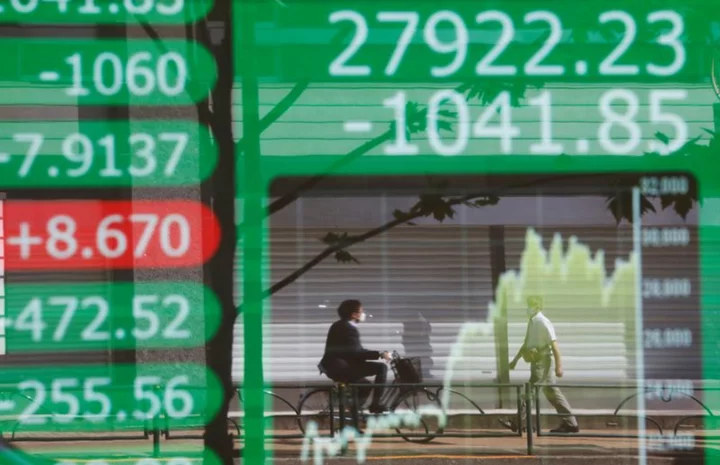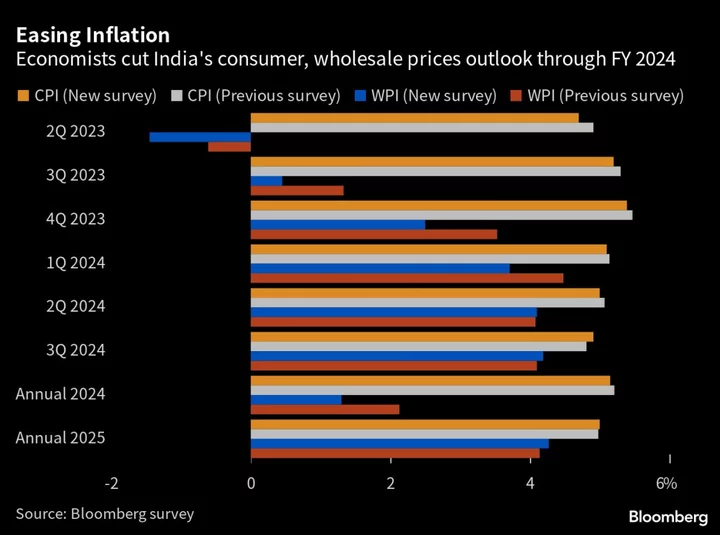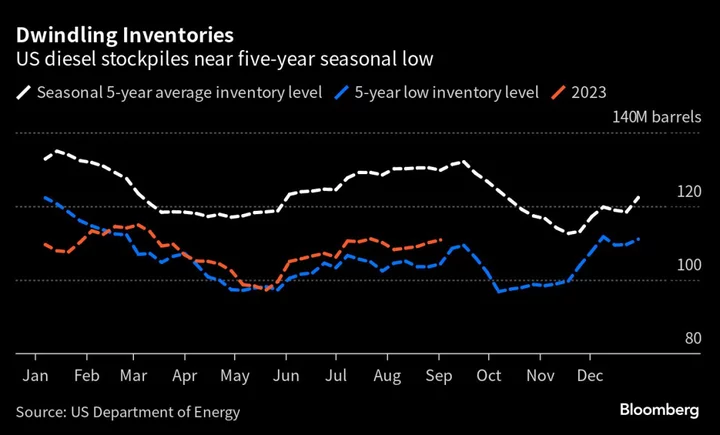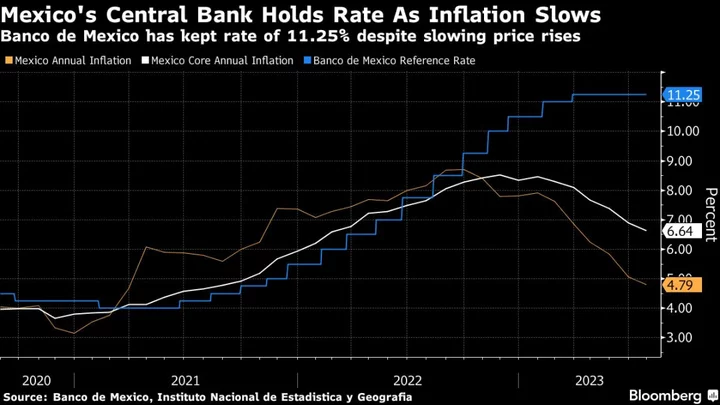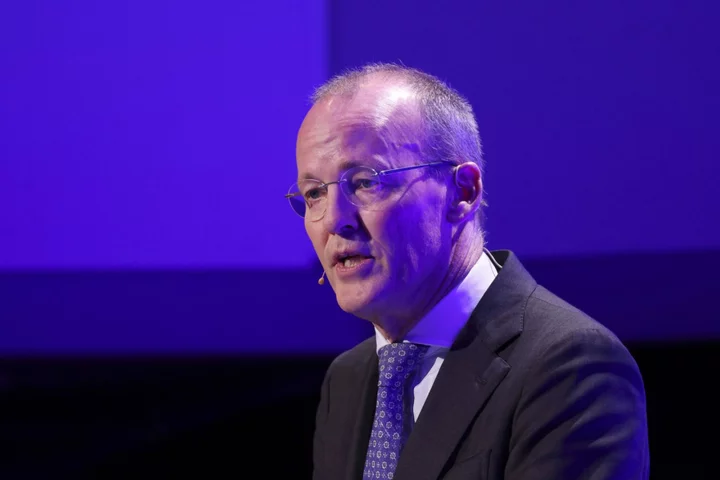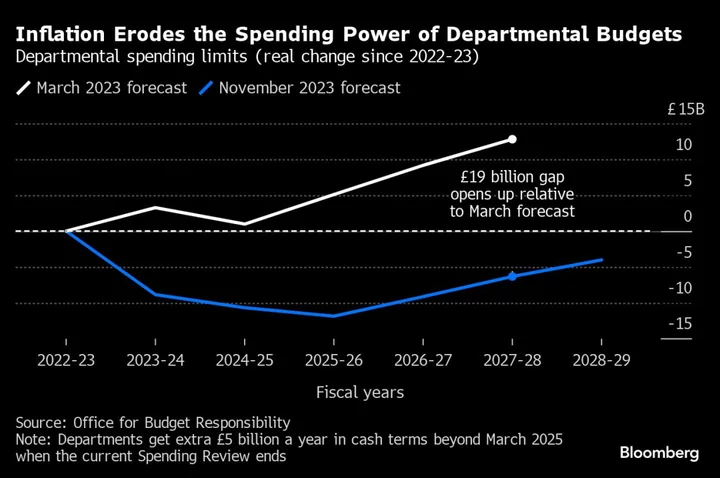By Xie Yu
HONG KONG Asian stocks and U.S. Treasury yields declined on Wednesday after ratings agency Fitch unexpectedly downgraded the United States' top-tier sovereign credit rating.
MSCI's broadest index of Asia-Pacific shares slid 1.9%. Japan's Nikkei dropped by 1.8%, while Australian shares tumbled 2.3%.
China's mainland benchmark and Hong Kong's fell by 0.9% and 2.2%, respectively, as some investors booked profits in the absence of concrete and forceful measures by Beijing to shore up a faltering economy.
Asian stocks were also weighed down by declines on Wall Street overnight. U.S. stock futures, the S&P 500 e-minis, pointed 0.2% lower on Wednesday.
In early European trades, the pan-region Euro Stoxx 50 futures were down 0.7%. German DAX futures and FTSE futures fell 0.8% and 0.5% respectively.
Fitch cut the United States by one notch to AA+ from AAA, citing fiscal deterioration, a decision announced after the Wall Street close on Tuesday.
U.S. 10-year Treasury yields declined by about 2 basis points to 4.025% in Tokyo. [US/]
"Most of the Asia turmoil this morning and the Treasury yields move is triggered by the Fitch decision," said Manishi Raychaudhuri, head of Asia Pacific equity research at BNP Paribas.
"It's kind of a short-term knee-jerk reaction, so we will have to wait and watch for how this pans out."
Raychaudhuri said the Fitch move might actually lead to increased demand for U.S. Treasuries, at least in the near term, given U.S. corporate debt "might be viewed as being more risky now than it used to be".
Investors counterintuitively fled to the relative safety of sovereign debt from riskier equity markets. Treasuries, whose yields fall when prices rise, were also bought when Standard & Poor's cut the U.S. top "AAA" rating by one notch to "AA-plus" in 2011.
Tony Sycamore, an analyst with IG, said apart from the Fitch move, there has been some disappointing data in the U.S. and China and some weaker-than-expected earnings, and people are taking money off the table.
Managers who can only hold debt with AAA ratings from at least two agencies, for example, need to sit down and think what to buy instead of the U.S. treasuries, he said.
The U.S. dollar moved lower against a basket of major currencies immediately after the announcement, but was up 0.1% as of the Asian afternoon.
Japan's 10-year bond yield hit a fresh nine-year peak on Wednesday as investors continued to test the Bank of Japan's tolerance for higher yields following Friday's surprise policy tweak.
While the investor reaction to the downgrade was relatively contained, it has injected some uncertainty into financial markets.
"This basically tells you the U.S. government’s spending is a problem. It's an unsustainable budget situation because the economy can't even grow its way out of this problem going forward," said Steven Ricchiuto, U.S. chief economist, Mizuho Securities. "Therefore, they're going to have to either tackle it or accept the consequences of potential further additional downgrades."
Looking beyond the Fitch downgrade, the main area of focus will still be central banks, corporate earnings and, in China specifically, stimulus prospects and geopolitical issues, said BNP's Raychaudhuri.
The United States publishes fresh data on jobless claims and unemployment later this week.
Oil prices gained on Wednesday, trading near their highest since April, after industry data showed a much steeper-than-expected draw last week in U.S. crude oil inventories.
West Texas Intermediate crude futures ticked up 0.9% to $82.07 while Brent crude rose to $85.60 per barrel.
Gold was slightly higher, trading at $1,948.29 per ounce.
(Reporting by Xie Yu; Additional reporting by Kevin Buckland in Tokyo; Editing by Sam Holmes and Sonali Paul)

